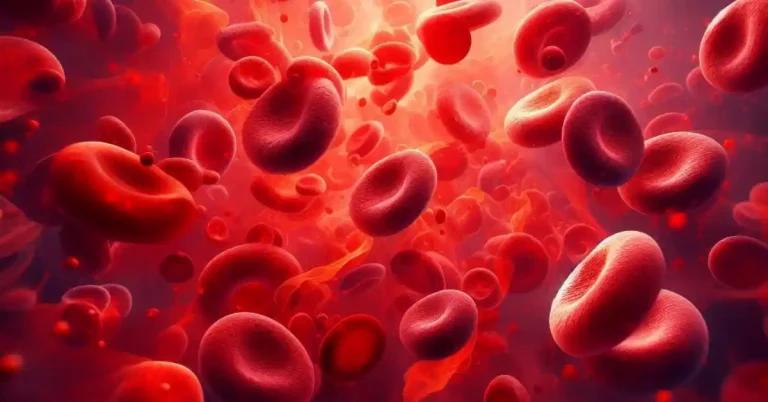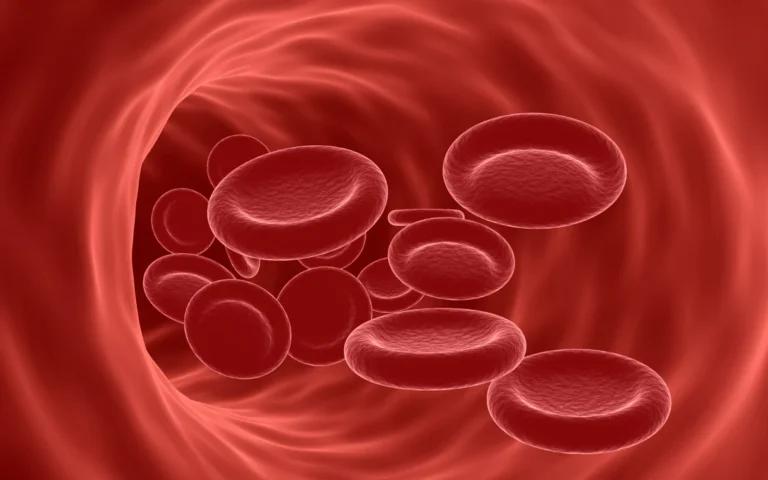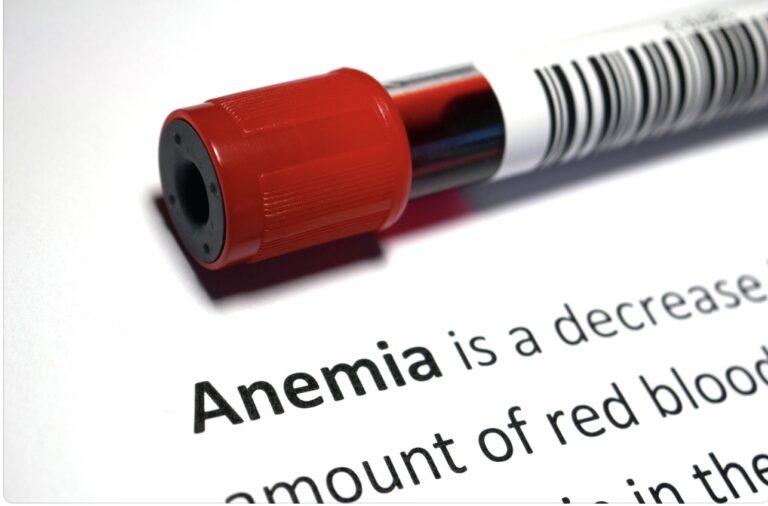Iron is commonly found in a variety of foods, but it can be difficult to maintain sufficient iron intake for your body to function at its best, which can lead to several issues and health problems. Iron deficiency is the most common nutritional deficiency in the world, and it is the leading cause of anaemia.
When people have iron-deficiency anaemia they may experience symptoms for years without knowing the cause. Many people ask whether low iron levels can cause weight gain. While low iron levels do not directly affect weight, the symptoms that arise from low iron levels can contribute to a change in weight and may be worth investigating.
📝 What are the roles of iron in the body?
Some of the many roles of iron in the body include:
- Transporting oxygen around the body: Iron is needed to produce red blood cells which contain a protein called haemoglobin. This protein can carry oxygen from your lungs to all the cells in your body so they can work properly. Haemoglobin is partly made from iron and accounts for about two-thirds of the body’s iron
- Myoglobin – a special protein that helps store oxygen in muscle cells. Myoglobin contains iron and is responsible for the red colour of muscle
- Enzymes – many enzymes throughout the body contain iron, including those involved in energy production. Enzymes are catalysts (increase the rate of chemical reaction) that drive many cell functions
- Immune system – proper functioning of the immune system relies, in part, on sufficient iron. The immune system helps us fight infection
What happens when my iron levels are low?
If you have mild or moderate iron deficiency, you may not realise it as you may just feel tired and run down. Low iron stores begin to affect the production of red blood cells and moderate to severe iron deficiency shows up with more obvious signs and symptoms:
- Fatigue and weakness
- Feeling lightheaded
- Pale skin
- Shortness of breath
- Restless leg syndrome
- Pica (cravings for non-food items like ice, chalk, paint or clay)
- Cold hands and feet
- Fast heartbeat
- Hair loss
- Low thyroid function
📈 How do low iron levels cause weight gain?
- When the body is low in iron and haemoglobin, this can lead to a slowed metabolism. A slower metabolism means the body burns calories less efficiently, which could potentially lead to weight gain or obesity
- Iron deficiency can impair thyroid hormone production. One study found that iron-deficient adolescent girls had improved thyroid hormone levels after receiving iron supplementation. Thyroid hormones play an important role in regulating metabolism. Hypothyroidism, a condition characterised by an underactive thyroid gland, can lead to weight gain. While there isn’t a direct link between iron deficiency anaemia, hypothyroidism, and weight gain, there is a potential connection between these factors
- Iron deficiency anaemia often leads to fatigue and low energy, making it difficult to engage in physical activity. This lack of energy could indirectly contribute to body weight gain and an increase in BMI (body mass index) due to inactivity. One study found that treating iron deficiency anaemia in women led to weight loss. However, this study was relatively small, and more research is needed to confirm these findings
Can increasing iron help you lose weight?
Tiredness and weakness are classic symptoms of low iron, which can cause a reduction in activity levels. Improving your iron levels, therefore can help improve energy levels and physical activity, leading to better weight management.
Iron deficiency can impair thyroid hormone production, which is important for regulating metabolism. One study showed that iron supplementation improved thyroid hormone levels in iron-deficient adolescent girls. Since an underactive thyroid (hypothyroidism) can lead to weight gain, this suggests a possible link between iron, thyroid function, and weight. However, more research is needed to determine if correcting iron deficiency alone is enough to influence weight.
Many other factors can cause you to lose or gain weight. Taking iron supplements or getting iron infusions should not be used as a weight loss tool.
🦠 What are the causes of iron deficiency?
Inadequate iron intake is the common cause of iron deficiency but there are many reasons that a person might become deficient in iron:
Blood loss
Chronic conditions that can cause internal bleeding can lead to iron deficiency anaemia. Stomach ulcers, polyps in the colon or intestines are some examples of these conditions.
Regular use of medicines such as aspirin or non-steroidal anti-inflammatory drugs (NSAIDs), such as ibuprofen and naproxen can lead to gastrointestinal tract bleeding. Heavy periods, regular blood donation and nose bleeds can also be a cause of blood loss.
Low iron intake in the diet
The amount of iron in your diet is important. Insufficient iron levels in the body over a significant period can cause iron deficiency anaemia. Some studies suggest vegetarians or vegans are more at risk of iron deficiency anaemia because of the lack of meat in their diet.
Increased requirement for iron
Breastfeeding and pregnant women need more iron during this time to create enough oxygen for the baby. If this extra iron isn’t iron deficiency can quickly occur.
Medical conditions
Some chronic diseases put individuals at increased risk of iron deficiency such as inflammatory bowel disease, celiac disease, Crohn’s disease, autoimmune diseases and kidney disease.
People with kidney disease do not make enough of a substance called erythropoietin. If the body can’t make enough erythropoietin to make red blood cells, iron levels can drop. Celiac disease and Crohn’s disease can make it harder for your intestines to absorb iron from the foods.
Excessive exercise
People who exercise excessively and athletes lose iron through their GI tracts and through the breakdown of red blood cells.
Problem with iron absorption
There are situations when people have problems with iron absorption including:
- A Helicobacter pylori infection of the stomach
- Gastrointestinal surgery, including weight loss surgery, prevents your body from absorbing enough iron. For example, people who’ve had gastric bypass surgery or a gastrectomy may develop iron deficiency anaemia
- Certain rare genetic conditions that disrupt the body’s ability to absorb iron
📈 What happens if iron deficiency anaemia is not treated?
If left untreated, iron deficiency can lead to other health problems. These include:
Fast heartbeat
The heart has to pump more blood to compensate for the low amount of oxygen resulting in an irregular heartbeat, chest pain or shortness of breath. In severe cases, it can lead to heart failure or an enlarged heart.
Pregnancy complications
In severe cases of iron deficiency, a child may be born prematurely or with a low birth weight. Most pregnant women take iron supplements as part of their prenatal care to prevent this from happening.
Delayed growth
Infants and young children who are severely low in iron may show stunted growth and delayed development. They may also be more prone to infections. Low-iron milk such as cow’s milk given before the age of one can also be a cause of low iron levels in this group.
🧪 Diagnosis of iron-deficiency anaemia
After taking a complete medical history and physical examination your healthcare provider will gather more information through blood tests. Here are some of the things that may be done:
- A complete blood count test (CBC test) that checks the red and white blood cells, platelets and other components
- Examination of red blood cells under a microscope. If red blood cells appear pale and smaller than usual this is a sign of anaemia
- Iron levels in the blood will be measured
- Transferrin levels in the blood will be measured. Transferrin is the protein that carries iron
- Ferritin levels in the blood will be measured. Ferritin is a protein that stores iron
💉 Treatment for iron deficiency
Treatment is determined by how severe the iron deficiency is, below are some typical treatment options:
Iron supplements
Iron tablets can help restore iron levels in your body. They are recommended to be taken on an empty stomach, which helps the body absorb them better, but If they upset your stomach you can take them with meals. You may need to take the supplements for 3-6 months. Iron supplements may cause side effects of constipation or black stools. In severe cases, patients may be prescribed intravenous (IV) iron supplements.
Blood transfusions
To treat serious cases of iron deficiency quickly, blood transfusions may be needed to increase the amount of red blood cells and iron in your blood.
Change in diet
A simple way to improve iron levels is to increase dietary iron intake. Dietary iron has two main forms: heme and nonheme. Plant-based sources and iron-fortified foods contain nonheme iron only, whereas animal-based sources such as meat, seafood, and poultry contain both heme and nonheme iron. The following foods are iron-rich foods to consider:
- Iron-fortified cereals
- Red meat
- Dark green vegetables
- Leafy greens
- Pulses and beans
- Eggs
- Dried fruit, such as dried apricots, prunes and raisins
Foods that enhance iron absorption are vitamin C-rich foods and are important to include in the diet when iron is low, these include:
- Citrus foods such as oranges
- Strawberries
- Brussel sprouts
- Broccoli
- Blackcurrants
- Peppers
Also combining heme and non-heme sources of food improves the absorption of iron from plant foods e.g. beef and kidney beans in chilli con carne is a good example of a meal combining eating meat with plant-based iron sources. Also cooking vegetables rather than eating them raw generally increases the amount of non-heme iron your body can absorb from them.
Foods to avoid
When iron levels are low in the body certain foods are best to avoid as they prevent the absorption of iron. These include:
- Tannins in tea, coffee and wine can hinder iron absorption by binding to it
- Soy proteins may reduce iron absorption from plant sources
- High calcium intake foods e.g. dairy products can interfere with iron absorption
📝 Conclusion
Iron deficiency anaemia can play a role in weight gain, often as a result of its impact on your appetite or activity levels. The underlying cause of a particular type of anaemia may also lead to weight loss or gain.
The reason for weight gain is not always straightforward and can be influenced by mental health conditions, stress and various medications. Always seek help and advice from a healthcare professional if you experience sudden weight gain or loss.
Sources
- Iron – Health Professional Fact Sheet
- Chronic anemia and thyroid function – PMC
- Treatment of iron deficiency anemia induces weight loss and improves metabolic parameters – PubMed
- Anemia in relation to body mass index and waist circumference among chinese women Nutrition Journal
- Iron-Deficiency Anemia: Symptoms, Treatments & Causes
- Iron deficiency anemia – Symptoms & causes – Mayo Clinic
Medical Disclaimer
NowPatient has taken all reasonable steps to ensure that all material is factually accurate, complete, and current. However, the knowledge and experience of a qualified healthcare professional should always be sought after instead of using the information on this page. Before taking any drug, you should always speak to your doctor or another qualified healthcare provider.
The information provided here about medications is subject to change and is not meant to include all uses, precautions, warnings, directions, drug interactions, allergic reactions, or negative effects. The absence of warnings or other information for a particular medication does not imply that the medication or medication combination is appropriate for all patients or for all possible purposes.









